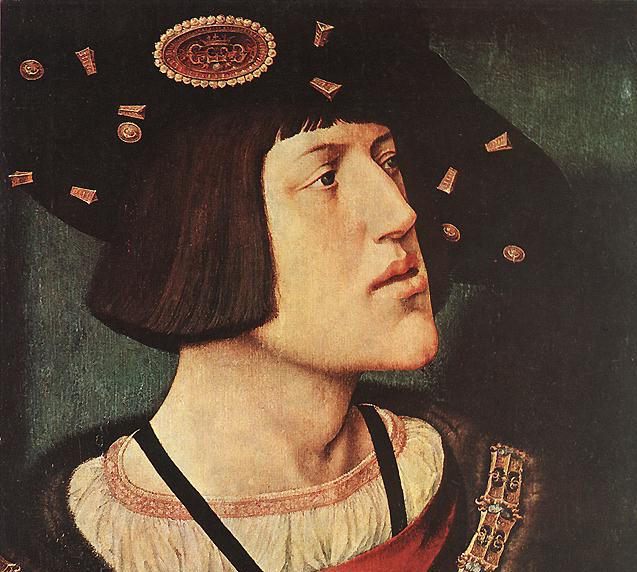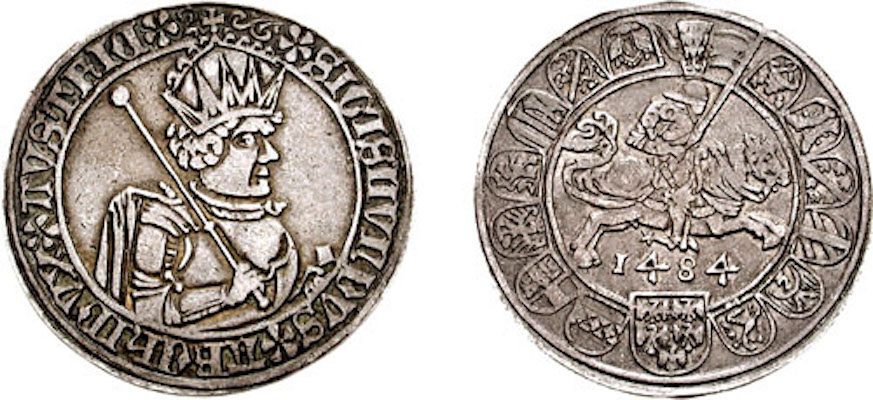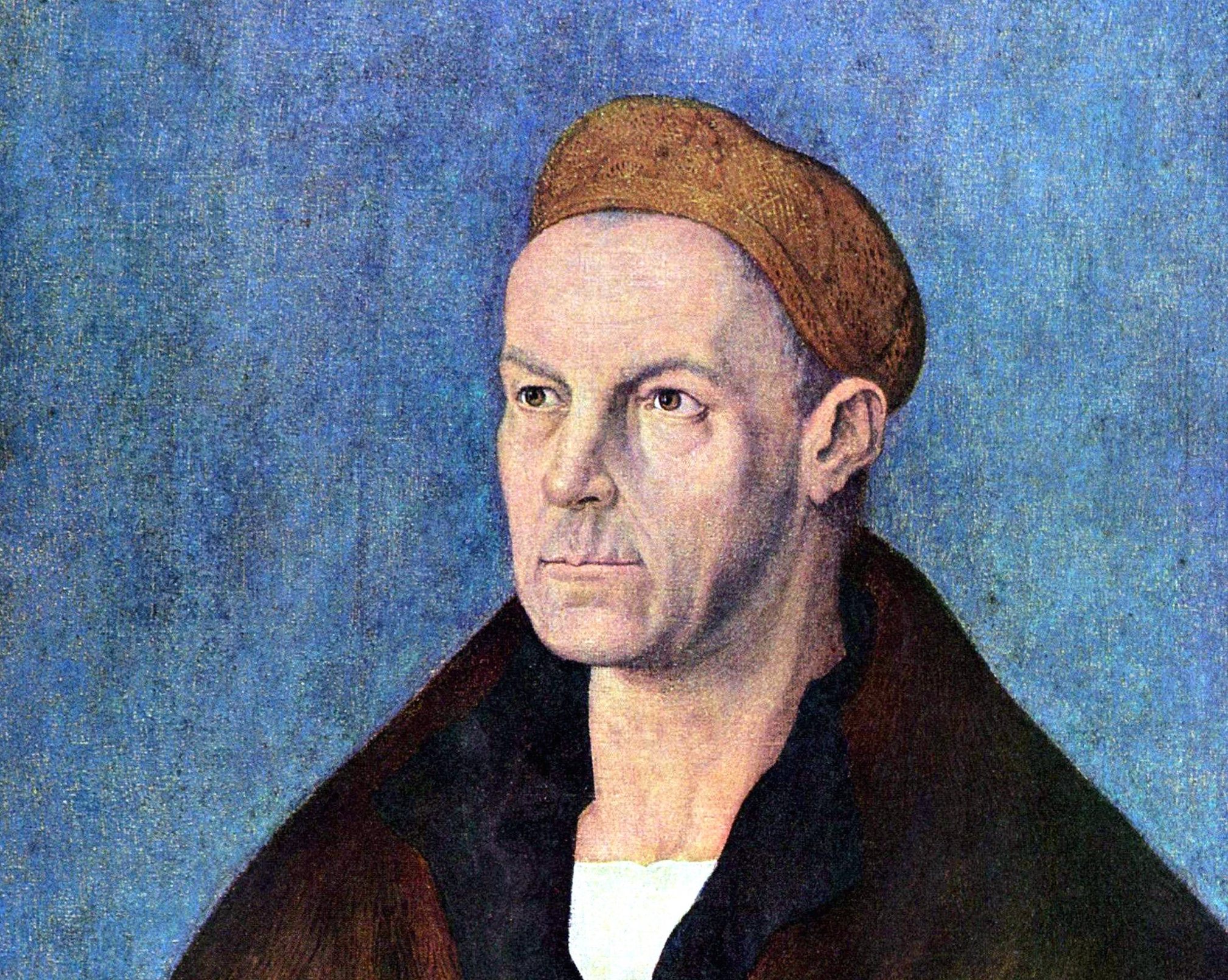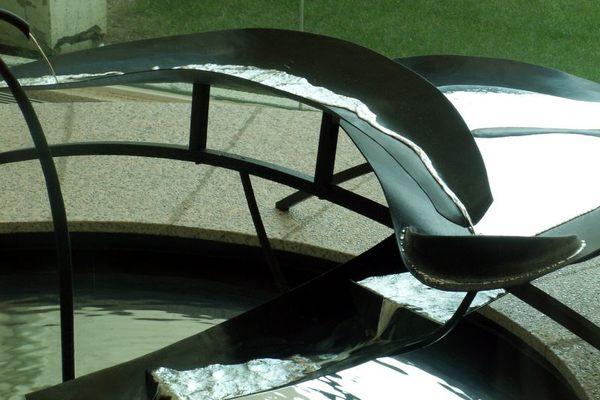How Money in Politics Worked in 1519

Charles V, after his election of Holy Roman Emperor (Image: Bernard van Orley)
The story of the Fugger family sounds like a good, old American tale of bootstrapping it to the top: the family patriarch, a low-level tradesman, makes his way to the big city and meets with some success; his heirs start expanding the business, then diversifying into others; and a few generations later, the family had made it into the elite of both wealth and power.
But the height of the Fuggers’ success hit well before America was even a country—in the early 16th century, not long after Columbus had first landed in Hispaniola.
In the early 1500s, the Fugger family was part of one of the first modern banking elites. They were the Medicis of Central Europe, and, as part of this new moneyed class, they took an outsized interest in and control over political leaders. Like today’s financial elite, they saw a business argument for funding political activities.
But in the early 16th century, the connections between campaign money, political power, and business deals were starker. In this pre-democratic era, political money didn’t go towards barnstorming across Europe or saturating the media with ads (newspapers didn’t even exist yet), but to convincing small groups of electors or individuals that this particular nobel was the right one for the job.
Few people had the kind of resources necessary to influence these elections. Today, just 400 families are providing most of the money for the 2016 election, but in 1519, when the crown of the Holy Roman Emperor was up for grabs, only a handful of families could participate in the money race. The Fuggers were one of them, and their willingness to spend the 16th century equivalent of tens of million of dollars dwarfed the competition’s, so much so that the family was essentially able to decide the race.

Silver coins, from Habsburg mines (Image: Carlomorino/Wikimedia)
The Fuggers money was already closely tied to the political elite. Starting in the 1480s, Jakob Fugger II—sometimes called Jacob the Rich—had started developing a financial relationship with the Habsburg family, offering loans at relatively high interest rates. These loans were usually secured with physical assets, including agricultural land and, often, mines, and one Habsburg archduke, in particular, helped grow the Fugger fortune by borrowing to maintain a lavish lifestyle.
From their base in Augsburg, Germany, the Fuggers gradually gained control over extremely profitable mines, including the silver mines in the alpine region of Tyrol and, in Spain, the Almadén mines, full of cinnabar, from which extremely valuable mercury was extracted, and the mines at Guadalcanal, full of still more silver.
The noble families of Europe didn’t just need money to throw parties, though. At this point in European history, gaining power required raising money, just like it does today. Sometimes, noble families needed loans to finance dowries, to cinch politically advantageous marriages. Sometimes they needed the money to campaign for particular positions. And the sums involved in funding these political campaigns could be large, in the tens or even hundreds of thousands of florins.
It was a powerful position, being part of a body of electors. By the 1200s, it had become routine for elections to involve some financial inducements for the people choosing Europe’s next leaders. As Greg Steinmetz recounts in his new biography of Jacob Fugger, The Richest Man Who Ever Lived, the Fuggers had funded a few campaigns here and there—5,600 florins to the papal campaign of Julius II, 34,000 florins to have Albrecht of Hohenzollern become Archbishop of Mainz.
This latter job was a very powerful position, essentially the second highest office in Germany—and one of the seven electors who could choose who would be the Holy Roman Emperor.

Jakob Fugger II (Image: Albrecht Dürer)
Not so many years before, the office of Holy Roman Emperor had not been that desirable (even if it sounded fancy). In the 700 years since Charlemagne had created the job, its privileges had dwindled while its burdens remained. But in the 15th century, Maximilian I had used it to consolidate Habsburg power across Europe, and when he died in 1519, a few candidates came forward to claim the throne. Maximilian had wanted it to go to his grandson, Charles V, who already ruled Spain. But the King of France, Francis I, saw that as a threat: if Charles ruled Spain and Germany, France would be surrounded. Once Francis I had begun his bid for the seat, Henry VII of England started gunning for the position, too.
Since 1376, the Holy Roman Emperor had been chosen by seven men: three archbishops and four secular leaders of different German regions. None of the three candidates were an obvious choice for the electors. Neither Charles nor Francis, the leading contenders, were really German; Charles had spent most of his life in the area that now makes up Belgium and the Netherlands, and he often spoke French. Francis was actually French.
The electors did weigh factors other than the financial incentives they were being offered. But money played a significant role in helping them decide who to back. From the beginning Maximilian had told Charles that money would help him win: “If you wish to gain that crown, you must spare nothing to secure all our affairs,” he wrote. Charles, though, was reluctant to make those deals, and the contest gained steam because Francis was willing to play the game. The French king was actually first to ask Fugger for a loan and had promised a few electors pensions and other financial rewards if they voted with him.
In the end, though, Jacob threw his power behind Charles, raising the more than 850,000 florins that the king used to secure the votes of the seven electors who could make him Holy Roman Emperor. This was a fortune, roughly equivalent to more than $100 million today. About two-thirds of that money came from Fugger’s own pocket—as loan, of course.
In the end, though, the Fugger family foray into politics didn’t pay off. In the next hundred years, silver became less valuable, and they started depending more on their mercury mines for income. All the while, they kept lending the Habsburgs money, and as their political commitments piled up, so did their debts. Eventually, the Habsburgs could no longer pay their debts to the Fuggers; the fortune that had once bought an entire kingdom for an emperor dwindled.
But a dwindling fortune is still a fortune: it was enough to keep the Fuggers working with some of Europe’s best families and underwrite the lives of Fugger heirs all the way into the 20th century.









Follow us on Twitter to get the latest on the world's hidden wonders.
Like us on Facebook to get the latest on the world's hidden wonders.
Follow us on Twitter Like us on Facebook